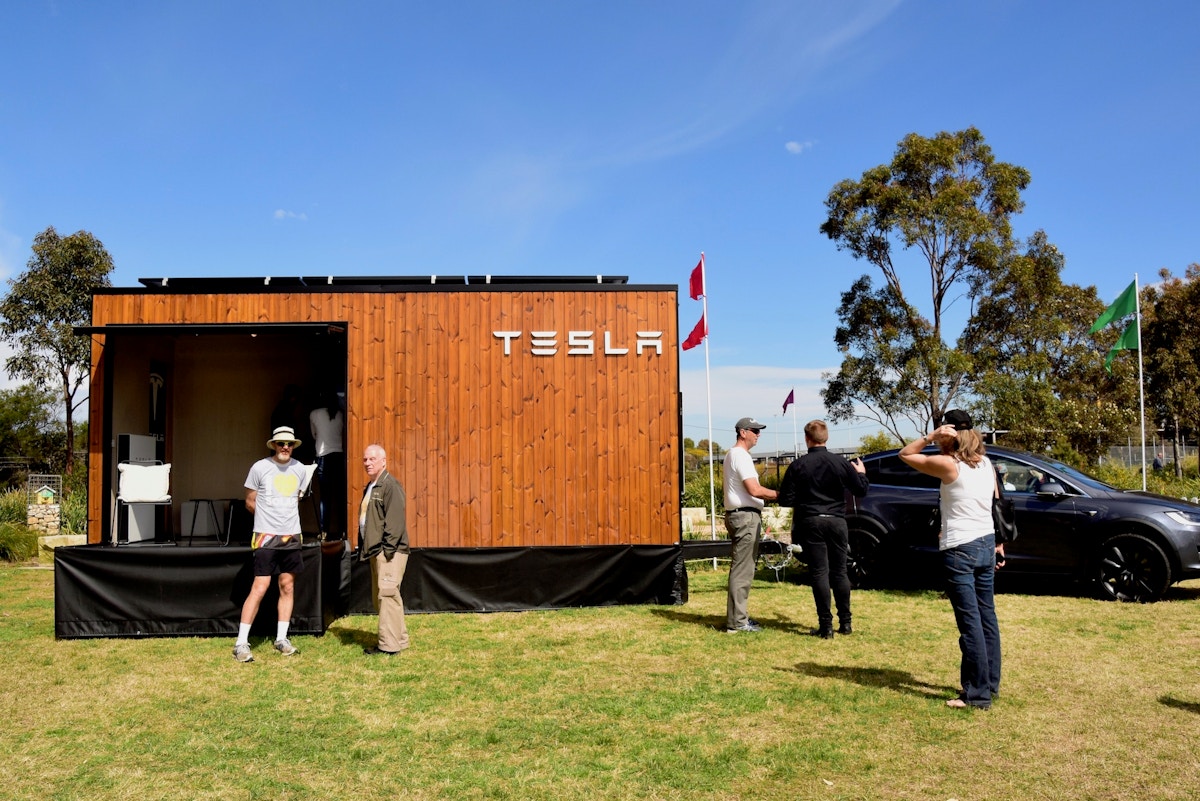Tesla Homes For Eco-Conscious Buyers Fire Incident During Flooding Event
Tesla Homes For Eco-Conscious Buyers Fire Incident During Flooding Event
Blog Article
Tesla Smart Homes With Solar Roofs Modern Open Concept House Design

Tiny home residing continues to realize popularity, drawing folks seeking affordability, simplicity, and sustainability. However, there are quite a few authorized concerns for tiny home dwelling that should not be overlooked. As individuals transition into this minimalist way of life, it is important to navigate the complexities of zoning laws, building codes, and land use laws.
Zoning legal guidelines dictate how land can be utilized in a selected area, affecting where tiny homes may be positioned. In many municipalities, conventional zoning regulations do not account for the unique nature of tiny homes. This inconsistency can lead to challenges when trying to place a tiny home on so much. Some regions might permit tiny homes as accessory dwelling units, whereas others may strictly prohibit them.
Building codes are another crucial side of tiny home dwelling. These codes set forth requirements for the development of homes to make sure security, habitability, and structural integrity. Tiny homes, usually constructed on trailers or as prefabricated items, could not meet standard building codes. It is significant to confirm whether native authorities acknowledge tiny homes and what particular codes apply to them.
Tesla Homes With Integrated Energy Solutions Video Shows Fire During Flooding Conditions
Permitting is a needed step earlier than relocating a tiny home. Homeowners should obtain the suitable permits to make sure compliance with local laws. This permit course of can range significantly by state or locality and may contain inspections and charges. Failure to secure the necessary permits may find yourself in fines or the inability to reside within the tiny home.
Land concerns play a major function in tiny home legality. Many folks select to park their tiny homes on private property, whether or not it be a family member's land or a chosen tiny home neighborhood - Tesla Homes For Clean, Green Living. Understanding property rights and lease agreements turns into imperative in these situations. Additionally, it’s crucial to verify whether or not the chosen land is zoned for residential use.
Homeowners also wants to think about owners associations (HOAs) if residing in areas ruled by these organizations. HOAs typically have strict guidelines relating to residential structures and aesthetics. Tiny homes won't adjust to these laws, which may lead to conflicts. It is advisable to consult the HOA guidelines earlier than continuing with tiny home plans to keep away from disputes.
Tesla Tiny Homes For Sale Catching Fire In Flooded Garage

Financing choices pose another challenge. Many financial institutions are hesitant to provide loans for tiny homes due to their unconventional nature. Understanding various financing avenues, similar to private loans or specialised lenders who cater to tiny homes, is essential. Exploring these choices can help potential householders make knowledgeable decisions and safe funding.
Insurance presents another authorized avenue for tiny home dwelling. Obtaining insurance for a tiny home can differ widely from normal householders insurance coverage insurance policies. Due to their unique buildings, many corporations may not provide protection, or they could require particular endorsements. Finding an insurer knowledgeable about tiny homes can help mitigate dangers associated with injury or legal responsibility.
Tesla Homes For Green Energy Enthusiasts House That Comes With A Battery
In addition to native laws, federal laws might influence tiny home living. Regulations from the Department of Housing and Urban Development (HUD) define standards for mobile and manufactured homes. If a tiny house is constructed on a permanent foundation, it could want to meet these requirements. Compliance with federal pointers can differ based mostly on a home’s classification.
One emerging option for tiny home living is placement in tiny home communities. These specialized developments usually cater to the tiny home life-style, providing dedicated space and shared facilities. However, this does not remove the need for cautious consideration to local rules. Each group could have its own set of tips, leases, and obligations that residents must adhere to.
Building sustainable and self-sufficient dwelling arrangements also requires compliance with environmental rules. Tiny home builders often goal to make use of eco-friendly supplies and minimize their carbon footprint. However, relying on the situation, there may be laws relating to waste disposal, water use, and energy consumption that influence how tiny homes can be designed and lived in sustainably.
Legal issues lengthen beyond development and zoning. Renting out a tiny home as a short-term rental can open one other layer of legal complexities. Understanding local rental laws, occupancy limits, and business licenses is essential for anyone seeking to monetize their tiny home. Lawful practices can help avoid penalties or potential litigation from regulatory authorities.
Tesla Eco-Friendly Homes House On Fire During Hurricane Event
As the tiny home motion evolves, advocacy groups work to handle many of these authorized points. They aim to coach policymakers about the advantages of allowing extra flexible zoning and constructing codes to accommodate tiny homes (Tesla Homes With Solar And Battery Backup). Engaging with native advocacy organizations might help make certain that the voice of tiny home dwellers is heard and respected in discussions regarding housing policy.
Community outreach is significant for overcoming authorized challenges in tiny home residing. Building relationships with neighbors and native authorities can foster understanding and cooperation. Providing information about tiny home benefits, such as affordability and minimal environmental impact, can pave the way for eventual acceptance.
Ultimately, navigating the authorized panorama surrounding tiny home living requires diligence and preparation. An in-depth understanding of local laws, codes, and rules is essential for establishing a successful and sustainable tiny home lifestyle. By conducting thorough analysis and making certain compliance with all authorized issues, potential tiny homeowners can considerably enhance their chances of a smooth transition into this new way of life.
The growing allure of tiny homes comes with its share of complex legal challenges. As extra people pursue this simplified lifestyle, it turns into crucial to stay informed and proactive concerning the laws that govern land use, development, and tenancy. Being educated on these matters allows for a extra seamless integration into the tiny home group, ensuring residents can maximize the benefits of dwelling within a smaller footprint.
Tesla Tiny Homes With Powerwall Fire Incident During Flooding Event
Tiny home dwelling offers an innovative solution to current housing challenges, but it doesn't come with out its obstacles. Legal considerations for tiny home dwelling embody various features, from zoning laws to insurance coverage and neighborhood compliance. Addressing these elements with a complete understanding can facilitate a smoother journey into the world of tiny homes.
In summary, embracing the tiny home life-style necessitates a thorough examination of the varied authorized issues that accompany it. Awareness of native legal guidelines, building codes, and group rules can considerably influence the success of a tiny home venture. With the right method, tiny home residing is normally a fulfilling and legally compliant selection. By educating oneself and fostering optimistic group relationships, people can help shape the future of tiny home residing in a legally sound method.
- Understanding zoning laws is essential; totally different municipalities have various regulations that may impression where tiny homes could be placed.
- It's important to discover out if the tiny home qualifies as a copyright or an RV, as this distinction impacts constructing codes and permits.
- Research local building codes to make sure compliance; many areas have specific necessities regarding measurement, safety features, and development supplies.
- Investigating land use laws might help keep away from conflicts with neighbors and make sure the tiny home group adheres to native pointers.
- Address potential title issues when purchasing land; some tiny homes are categorized as private property, whereas others may be real estate, impacting financing options.
- Consider the impression of homeowner affiliation (HOA) guidelines that may restrict tiny home dwelling or impose extra requirements for homes within their jurisdiction.
- Insurance insurance policies for tiny homes differ considerably; acquiring the best protection can shield in opposition to liabilities and damages that traditional householders face.
- Evaluate utility hookups and rules associated to water, sewage, and electricity to guarantee that the tiny home can be properly serviced.
- Be conscious of property tax implications; the classification of the tiny home can have an result on tax obligations and local assessments.
- Stay informed you could try here about potential modifications in laws, as laws governing tiny homes are evolving and can differ significantly over time and site.
What zoning laws apply to tiny homes in my area?undefinedZoning legal guidelines vary considerably by location. It's important to check together with your native planning division to understand whether tiny homes are permitted and if any specific regulations apply.
Affordable Tesla Homes Video Shows Fire During Flooding Conditions
Do I need a constructing permit for a tiny home?undefinedMost municipalities require a constructing permit for developing or inserting a tiny home on a permanent basis. Temporary structures or RVs might have different rules, so verify with native authorities.
Can I park my tiny home on my property?undefinedParking laws depend on native zoning legal guidelines and land use policies. Ensure your property is zoned for residential use, and examine any HOA guidelines if applicable.
Are tiny homes considered as everlasting housing?undefinedTiny homes can be categorised as both permanent or momentary housing. If they are on a basis, they typically are seen as permanent dwellings; in any other case, they may fall underneath RV regulations.
What are the utility hookup necessities for tiny homes?undefinedUtilities such as water, electricity, and sewage should comply with native codes. Check with utility suppliers and local laws to make sure proper installations and connections.
Tesla Homes With Integrated Energy Solutions Fully Furnished House Available For Purchase
How do I finance a tiny home legally?undefinedFinancing choices for tiny homes vary. Some lenders supply loans for tiny homes on foundations, while others contemplate them RVs. Research financing options particular to your tiny home's classification.
Will my tiny home need to meet constructing codes?undefinedIf your tiny home is classified as a everlasting dwelling, it must meet applicable constructing codes. Always seek the guidance of native building authorities to make sure compliance during building.
Tesla Homes For Sustainable Energy Upcoming Plans For New Battery Systems
Can I use my tiny home as a rental property?undefinedShort-term rental laws might apply when you intend to lease out your tiny home. Familiarize your self with native rental laws and procure necessary permits to keep away from fines.
What are the tax implications of owning a tiny home?undefinedTax implications can range based mostly in your location and the classification of your tiny home. It's advisable to seek the guidance of a tax professional to grasp property taxes and potential deductions.
Are tiny homes subject to native housing regulations?undefinedYes, tiny YOURURL.com homes may be topic to housing regulations, particularly if they are categorized as permanent residences. Review your local housing codes to make sure compliance with security and habitability standards.
Report this page